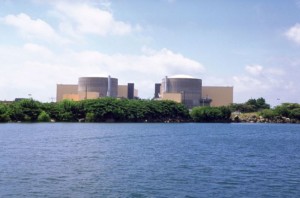 There are several concerns regarding the use of hydrogen cylinders, especially safety concerns; this has raised the demands for safer alternatives in laboratories where hydrogen is needed for gas chromatography and a gas carrier. A hydrogen generator is a more superior alternative as it is more cost-efficient, safer, and convenient to use and store.
There are several concerns regarding the use of hydrogen cylinders, especially safety concerns; this has raised the demands for safer alternatives in laboratories where hydrogen is needed for gas chromatography and a gas carrier. A hydrogen generator is a more superior alternative as it is more cost-efficient, safer, and convenient to use and store.
Hydrogen generators are compact; they can be placed anywhere in a lab, unlike gas cylinders with their pipeline. Moreover, by using a hydrogen generator, you eliminate the risk of running out of hydrogen gas at an inconvenient time as it consistently provides pure hydrogen by using water as a raw material. To know more about hydrogen gas generators, visit thsenergy.com.
6 Advantages of Using Hydrogen Generators
The demand for hydrogen generators has increased exponentially over the last few years. Hydrogen gas is an essential raw material in a lot of sectors, such as the industrial sector, the agricultural sector, and the chemical sector. There are several advantages of using a hydrogen generator, some of which are;
Increased safety
Unlike high-pressure hydrogen cylinders, hydrogen gas generators provide greater safety. The outflow of hydrogen from the generator is slow; hence, it is less than likely you would encounter an explosion, and by comparing pressures, we notice hydrogen generators have lower pressure.
Consistent supply of hydrogen
Gas cylinders run out after a while. In contrast, hydrogen gas generators provided a consistent supply of hydrogen, as long as there is water (present in abundance), which is the raw material in hydrogen production. Moreover, the time taken between removing, changing, and storing the cylinders is also eliminated when using a hydrogen generator.
Reduced Manpower
The use of gas cylinders for gas chromatography (GC) requires a lot of human resources to consistently check for leaks, change the cylinder, and maintenance. On the other hand, hydrogen generators either reduce or eliminate the need for manpower as multiple system alerts can be set to notify of any anomalies.
Cost efficiencies
Since manpower is reduced or eliminated, the cost added towards wages is also reduced. Additionally, a hydrogen generator is a one-time investment, unlike gas cylinders that run out and need to be changed. Moreover, there are additional costs associated with using a gas cylinder even before they enter the site of use, which is majorly contributed by transportation cost. Most importantly, purchasing a hydrogen generator will bring a return on investment a few years down the line.
Eco-friendly
As mentioned previously, the gas cylinders need to be changed as soon as they run out, and new ones brought in ones the store stocks run low. When this situation occurs, transportation is needed to bring in a fresh batch of cylinders; this leaves behind a carbon footprint through the combustion of fuel used in the transport vehicles.
100% pure outputs
Gas cylinders have fluctuations in the purity level from one cylinder to another; this can reduce the reliability in the gas chromatography systems whereas, hydrogen generators consistently provide hydrogen that is of a fixed level of purity (99.99%) throughout the supply cycle.


